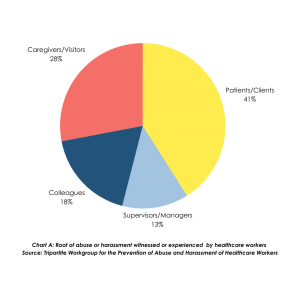Powerful Resilience Strategies on Singapore’s Healthcare Killer: Burnout
Written by: Destiny Goh
Burnout is a major issue in Singapore’s healthcare, with over 70% of professionals experiencing symptoms. Factors like heavy workloads, patient/colleague abuse (experienced by 32-40% of public healthcare workers), fear of retaliation, and stigma around mental health contribute to this “silent killer.” Leaders need to implement strategies like protected breaks, foster respect and psychological safety (e.g., Schwartz Rounds), and establish robust, confidential reporting mechanisms to support staff well-being and prevent burnout. Staff education on coping strategies and reporting is also crucial.
Sarah is a young, dedicated nurse in a busy Singapore hospital. Her days start before dawn and often stretch past her scheduled shift. She manages complex medical needs, soothes anxious families, and handles endless administrative work. She is emotionally exhausted, has sleepless nights, and is experiencing declining health. Sarah is one of many silently battling occupational often burnout without realising it.
Burnout is emotional exhaustion, depersonalisation, and a reduced sense of personal accomplishment, which severely impacts individuals and the quality of care they provide.
A survey was conducted among 6048 healthcare professionals, including doctors, nurses, allied health professionals, and non-clinical staff. It was found that 71.3% experienced symptoms in at least one category, 35.3% in two, and 16.2% in all three.
(The survey on symptoms mentioned includes emotional exhaustion, depersonalisation, and a reduced sense of personal accomplishment.)


Consider Dr. Lim, a young doctor. During a stressful night shift, a frustrated patient verbally abused him, leaving him shaken and questioning his commitment. Dr. Lim’s direct reporting senior dismissed his concerns, claimed it was normal in such settings, and even told him to ‘man up’.
A 2022 survey reported 32 to 40% of public healthcare workers, 25% in private healthcare workers, and 27% community care organisation workers witnessed or experienced abuse or harassment. Additionally, 46% have witnessed or experienced shouting and threats from patients. Verbal abuse and bullying create a toxic environment that erodes morale and psychological safety.
Why do professionals like Sarah and Dr. Lim suffer in silence? The reasons are complex and ingrained in healthcare culture. Fear of retaliation is a major barrier. Reporting a senior colleague or influential patient may lead to negative evaluations, fewer opportunities, and ostracism.

There’s also ongoing stigma around mental health and vulnerability, in a high-stakes setting where resilience is prized, admitting to burnout or abuse can feel like failure.
For some, abuse is normalised—seen as ‘just part of healthcare,’ a dangerous acceptance that perpetuates the cycle. Lack of faith in reporting mechanisms also discourages speaking up. If previous reports haven’t led to change, why risk the fallout?
Burnout can cause behavioural, physical, and sometimes cognitive changes. Here are some factors of burnout:

In another survey, it was found that healthcare workers who face abuse or harassment often seek support through multiple facets, mainly colleagues and supervisors, yet 11% told no one.

Root causes of abuse and harassment:
Patient/caregiver stress includes discrimination, mismatched expectations, and impaired self-control. Limited resources and inconsistent processes in hospitals can hinder effective management and reporting. These issues worsen negative events and underreporting, so solutions are needed for patients, staff, and hospitals to create a safe environment.
Resilience strategies that leaders can adopt in tackling burnout:
Following findings released in March 2023, a framework was launched to safeguard healthcare staff while they continuously do their best for all Singaporeans.
OAI recognises that high burnout rates in Singapore hospitals are often linked to insufficient healthcare staffing. We see the importance of implementing strategic solutions to alleviate these challenges. Our flexible contract staffing options allow organisations to effectively manage fluctuating workloads and avoid overburdening existing employees.
Our healthcare support of Recruitment Process Outsourcing (RPO) aims to significantly reduce the hiring stress experienced by internal teams, freeing up their time and energy to focus on core responsibilities. Beyond recruitment, OAI’s HR consulting services offer valuable resources for developing and implementing robust internal support systems, contributing to a healthier and more sustainable work environment.
While progress is underway, more comprehensive education is needed. Some institutions offer stress management and resilience workshops; unions and professional groups may conduct workplace rights and conflict resolution seminars.
However, a consistent approach to educating all healthcare professionals, from junior medical officers to senior staff, about burnout, abuse prevention, and reporting is vital. Education should focus on coping strategies and foster a culture of empathy, respect, and accountability.
- Safeguard staff wellbeing:
Leaders can implement a ‘protected time’ policy that guarantees at least 30 minutes of uninterrupted breaks. Regular informal well-being check-ins can help identify early signs of stress and burnout. These breaks allow staff to recharge, reducing stress and preventing burnout.
- Foster Respect and psychological safety:
Leadership must clearly state expected conduct, define unacceptable behaviour, and enforce intolerance for abuse. Schwartz Rounds, implemented in over 900 healthcare organisations in countries such as the US, Canada, the UK, Ireland, Australia, and New Zealand, provides confidential spaces for staff to share experiences that are guided by trained facilitators. This fosters empathy and resilience, leading to better patient care.
- Implement robust reporting mechanisms: Reporting systems must be accessible and well-publicised. Consider creating anonymous forms, a confidential HR contact, and a dedicated ethics committee with clear protocols to build trust and ensure consistent, transparent handling of reports. Anonymity reduces fear of retaliation.
By recognising the hidden scars of burnout and abuse and amplifying affected voices, we can build a healthcare system that delivers not only excellent care but also values its people.
If you are looking to hire medical contract staff or seek HR consulting services, email us at: nonaviationteam@oaigroup.com
Let us do the heavy lifting, and you can focus on what truly matters.
The experiences of “Sarah” and “Dr. Lim” use hypothetical data to illustrate the prevalence of workplace abuse and harassment.




